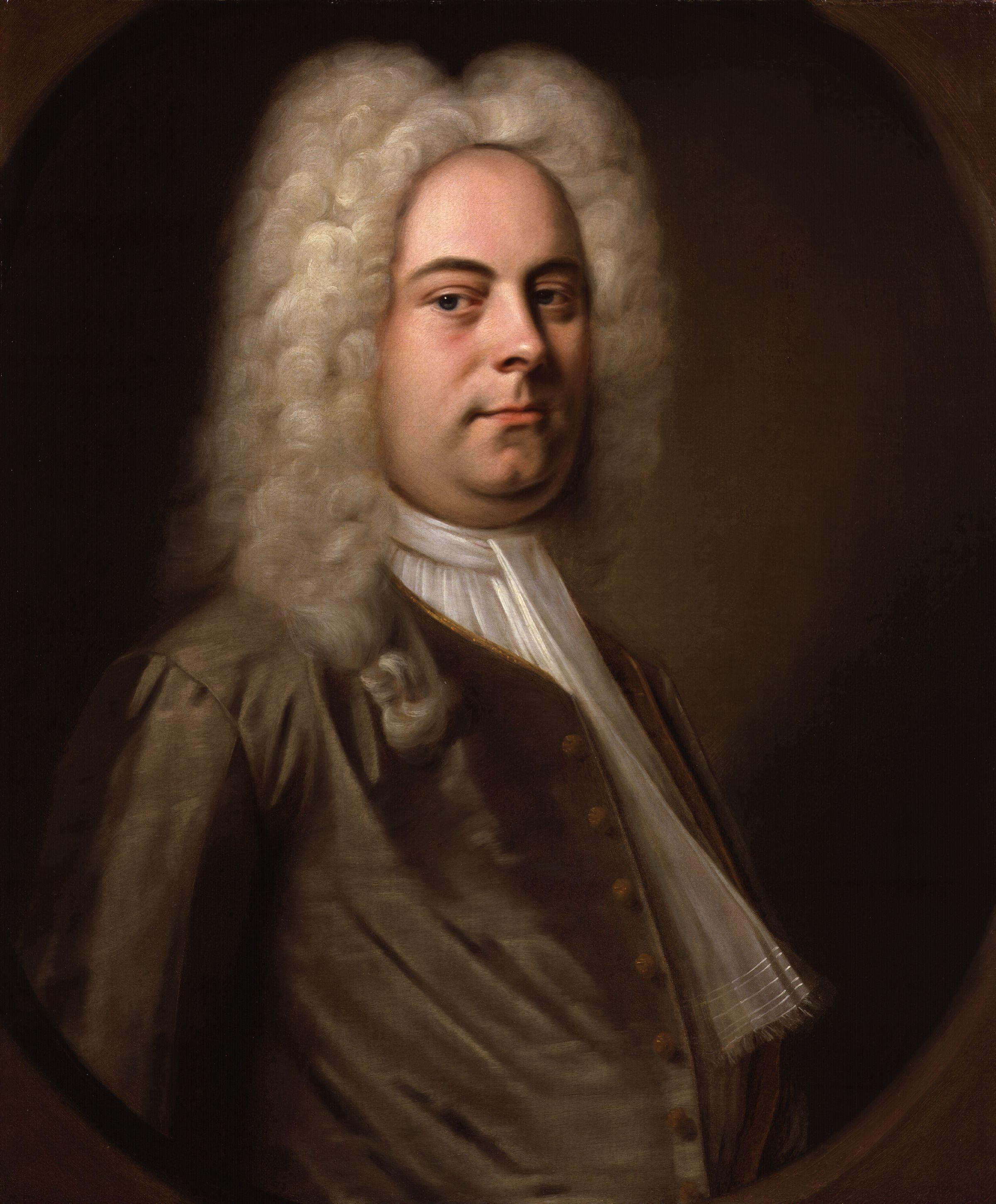Georg Friedrich Händel foi um compositor alemão, naturalizado cidadão britânico em 1726.
Desde cedo mostrou notável talento musical, e a despeito da oposição de seu pai, que o queria um advogado, conseguiu receber um treinamento qualificado na arte da música. A primeira parte de sua carreira foi passada em Hamburgo, como violinista e maestro da orquestra da ópera local. Depois dirigiu-se para a Itália, onde conheceu a fama pela primeira vez, estreando várias obras com grande sucesso e entrando em contato com músicos importantes. Em seguida foi indicado mestre de capela do Eleitor de Hanôver, mas pouco trabalhou para ele, e esteve na maior parte do tempo ausente, em Londres. Seu patrão mais tarde se tornou rei da Grã-Bretanha como Jorge I, para quem continuou compondo. Fixou-se definitivamente em Londres, e ali desenvolveu a parte mais importante de sua carreira, como autor de óperas, oratórios e música instrumental. Quando adquiriu cidadania britânica adotou o nome George Frideric Handel.Tinha grande facilidade para compor, como prova sua vasta produção, que compreende mais de 600 obras, muitas delas de grandes proporções, entre elas dezenas de óperas e oratórios em vários movimentos. Sua fama em vida foi enorme, tanto como compositor quanto como instrumentista, e mais de uma vez foi chamado de "divino" pelos seus contemporâneos. Sua música se tornou conhecida em muitas partes do mundo, foi de especial importância para a formação da cultura musical britânica moderna, e desde a metade do século XX tem sido recuperada com crescente interesse. Hoje ele é considerado um dos grandes mestres do Barroco musical europeu.
Wikipedia
✵
23. Fevereiro 1685 – 14. Abril 1759
